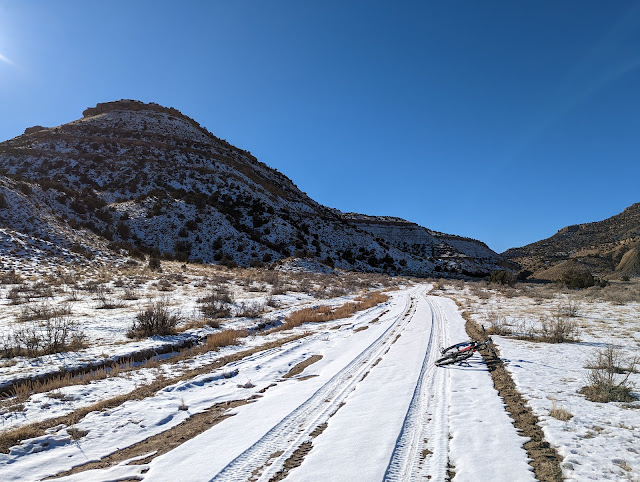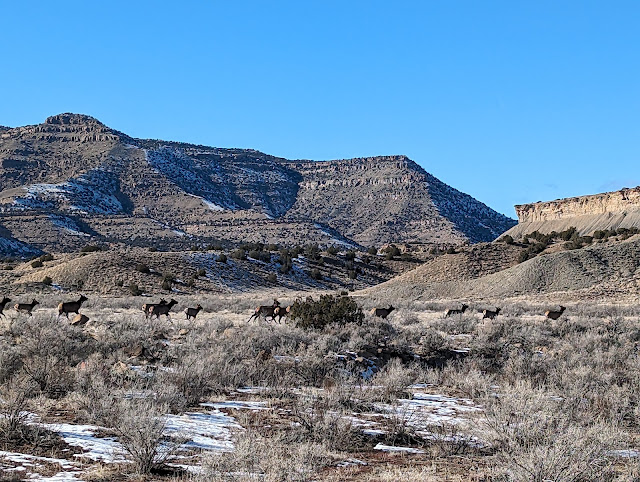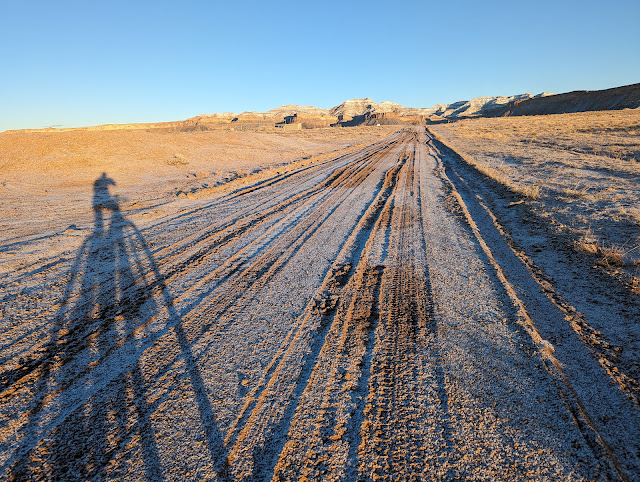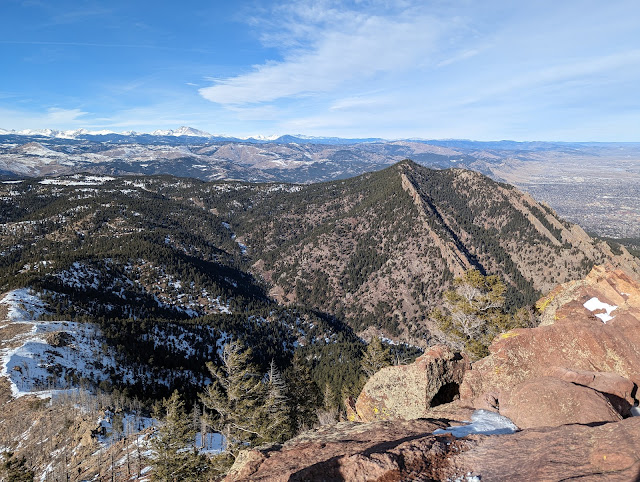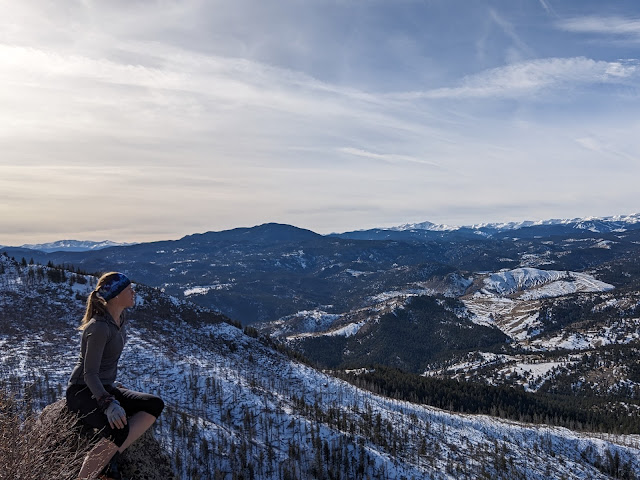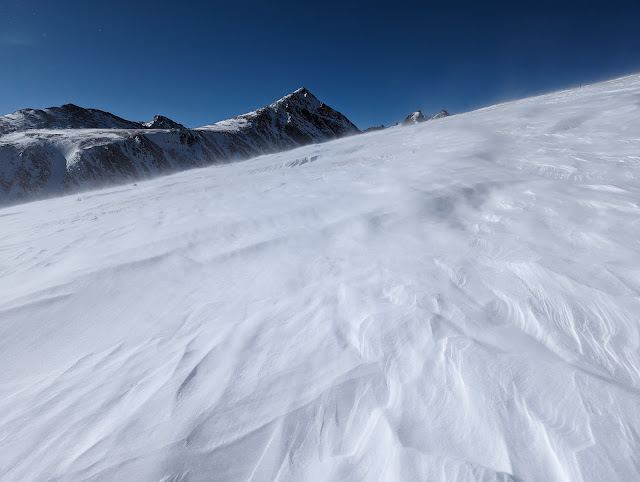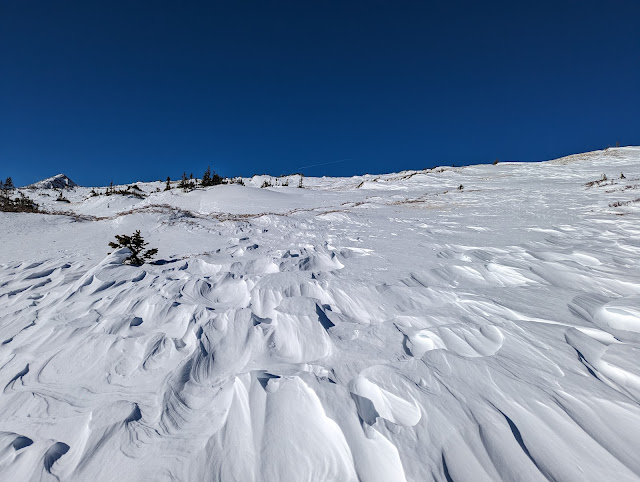“In this trembling moment ... is it still possible to face the gathering darkness and say to the physical earth, and to all its creatures, including ourselves, fiercely and without embarrassment, I love you, and to embrace fearlessly the burning world?”
— Barry Lopez
I'm still not sure what I want to do with this old blog, but I still feel compelled to check in from time to time if only to record my slow descent into madness. Friends have asked me if I'm doing better, and the truth is, I'm not. Insomnia and anxiety have been a major battle, and don't know which one leads to the other or whether it even matters. Each morning arrives after a fair to poor night of sleep, and I immediately feel overwhelmed with irrational but powerful negative emotions that I must wrestle with to get through each day. I believe I'm still succeeding on a functional level. But I am so very tired, and it's becoming harder not to, say, burst into tears during Saturday morning yoga class.
A physical comparison I could make is that it feels like I am at mile 10 of a difficult 100-mile ultramarathon and my legs are already screaming at me. I am still able to effectively say "shut up legs," but it's almost impossible to conceive how I'm going to push through this pain all the way to the end. Similarly, it's difficult to conceive how I'm going to remain fully functional through the end of this year unless I can turn things around. I don't want to be overdramatic, but this is genuinely how I feel, and I want to convey as well as I can that no, I'm not okay.
I have been working on myself. The beginning of 2023 spurred changes to my wellness routine including twice-weekly weight training and once-weekly restorative yoga (I love yoga. I'm about 6% competent but I love it and wish I could make room for more in-person classes.) I've been meeting online with a therapist who prompted me to cut my caffeine intake to one cup of coffee per day (about a third to a quarter of what I was taking in before) and do a nightly muscle relaxation exercise, which generally works better for me than sedentary meditation.
She also encouraged me to start wearing my Garmin watch all of the time to better track my body metrics. I've only been doing this for a week, and while many metrics are not surprising (yes, I believe I'm starting each day with my body battery at 30% and yes, I would rate that sleep as "poor"), it did show a sharp drop in my oxygen saturation while I'm sleeping — sometimes as low as 83%. While I don't know how accurate this is, now I have sleep apnea or another form of sleep hypoxemia as another concern. It's another question I intend to bring to my doctor when I finally see her for all of the 15 minutes I'll probably get after waiting for an appointment for three weeks. Also on that list of questions are perimenopause, subclinical hypothyroidism, and antidepressants.
I'm dreading this conversation more than I can convey and almost wish I could just ask for a medically induced coma to get me through my 40s. This daydream leads to admonishing myself for wishing away my one wild and precious life. But when you can't sleep, when you really can't sleep ... there's nothing in the world you wish for more.
I have been leaning a little hard on exercise; physical activity is still the one state in which I feel mostly "normal." I'm not spending more time exercising than I was back when I was training for things, but I am already so very tired and admit that I am not fully listening to my body when it tells me I should dial back the intensity of my efforts.
A couple of weeks ago, there were rumors of stellar trail conditions in the local mountains, so I excitedly packed up my fat bike and set an early alarm. My total amount of sleep was about two hours when the alarm went off, so I turned it off and instead snoozed several hours of morning daylight away. Waking up, I was filled with loathing and dread and couldn't bear the thought of driving into the mountains. But I also needed something to cope, so I used the excuse of a hard-to-get Zwift "badge" to spend the entire day riding my bike trainer.
I logged 110 "miles" of mindless spinning. It was great. I felt a lot better. But does this sort of thing come with a price? Undoubtedly it does. But don't worry about me just yet; there aren't many days that I can find the time and energy for such exhaustive efforts. My watch still records my training status as "productive." But when another sleepless night passes into a depleted-battery morning, I'm right back where I started.
Stung with unexpected sadness, I continued toward Bear Lake. The gravelly voice of my anxiety whispered that this was too much and I should just turn around and go home. My stormy mind was deep in rumination when a dog darted out of the snow bank and galloped beside my car. As I slowed, the animal veered in front of me and I realized it was a coyote. What was it doing? I slowed some more to allow it to veer back into the woods, but it also slowed its pace and looked back. As I sped up again to capture this photo with my phone, it also picked up the pace but held steady on the double yellow line. We continued in this push and pull for more than a mile before the coyote veered off to the left and I was able to safely pass. Was it playing chase with my car? I'll never know, but the interaction did bring my head back to center.
"Existential loneliness and a sense that one's life is inconsequential, both of which are hallmarks of modern civilizations, seem to me to derive in part from our abandoning a belief in the therapeutic dimensions of a relationship with place."
— Barry Lopez
Sometimes I feel ashamed over the depth of sadness I feel when I see a wildfire scar or images of Juneau's Mendenhall Glacier, shockingly diminished from photos I captured myself in the recent-seeming year of 2007. After all, this is the nature of things. All is impermanent, and grief only arises from our unwillingness to accept change. Still, I feel these losses as though I've lost a piece of myself. I feel it in the way I feel my own time slipping away.
Acceptance, I know, is the only path to peace, and yet it's so hard to find. But in searching for acceptance, I have come to better understand how my difficulties with my mental health are anchored in grief — for the people in my life who I have loved and lost, for myself, and for the land.
I stepped out of my car into the hard wind that nearly always rakes these canyons on the sharp edge of the Continental Divide. The wind is such a constant that even lake ice freezes in a rippled pattern. It's such a constant that if you spent all of your time here, you'd eventually stop noticing the wind. It would become its own comfort, and calm would feel eerie and strange. I sometimes wonder — if I had to choose a single, small place to spend the rest of my life, where that might be. I fall in love with nearly every place I visit, so it seems impossible to choose, but Rocky Mountain National Park might be near the top of the list. It — like any place really — could offer a lifetime of exploring and still yield countless discoveries. The weather is fearsome year-round, the terrain steep and frightening, and it's difficult to imagine ever feeling fully comfortable here. And yet if all I had was time, I can imagine becoming burned into this land.
I strapped on snowshoes and started an audiobook. I had just finished "Arctic Dreams" by Barry Lopez, which I first read as a college freshman and remembered loving. The landscape, culture, and history of the Arctic were so alien to me at the time. Lopez's observations were enthralling. I wondered how I'd feel about the book as a jaded adult who had forged my own impressions of the Far North. I still loved the lyrical prose, but the book did leave me feeling more sad than enthralled. Perhaps it's just my current mental state, but there's also an element of "Arctic Dreams" — published in 1986 — that reads as a eulogy to a time and place already gone.
Still, I enjoyed listening to "Arctic Dreams," so I purchased another book of essays by Lopez, published posthumously last year — "Embrace Fearlessly the Burning World." The title alone told me exactly what I wanted to hear, so I looked forward to diving in.
"Evidence of the failure to love is everywhere around us. To contemplate what it is to love today brings us up against reefs of darkness and walls of despair. If we are to manage the havoc — ocean acidification, corporate malfeasance and government corruption, endless war — we have to reimagine what it means to live lives that matter, or we will only continue to push on with the unwarranted hope that things will work out."
— Barry Lopez
Life is easy when I am walking. Even when a cold wind sweeps down the mountainside, even when my snowshoe-laden feet bog down in stiff powder, even when hours pass and I run low on water and need to sprawl atop a precarious snowbank to dip my bottle beneath the ice of a swirling creek. All I had to do on this Friday was walk, listen to Lopez's soothing words, and believe they were written for me — a person who is trembling beneath the weight of life's uncertainties, who already feels crushed by grief while knowing so much more lies ahead, who can't take comfort in unwarranted hope. Lopez knew he was dying from prostate cancer when he wrote several of the essays in this book. The Covid-19 pandemic was already underway and the landscapes he explored in "Arctic Dreams" already drastically altered by climate change. His words read as those of a wisened elder exiting a breaking world — but also an optimist who is straining with all of his remaining energy to find the light shining through the cracks.
While punching a trail toward a hanging lake called Sky Pond, I ventured too far up a steep slope and realized later than ideal that this was not a good idea. I had resolved not to hike into potential avalanche terrain or any slope that would require crampons and an ice ax. This was just such a slope. Normally my fear response would alert me sooner, but I am not receiving my usual signals right now. Feeling afraid of everything also means, in a way, I am afraid of nothing. Dangers and non-dangers alike fire the same synapses. Suddenly aware and humbled, I carefully picked my way back down the slope.
"To survive what's headed our way — global climate disruption, a new pandemic, additional authoritarian governments — and to endure, we will have to stretch our imaginations. We will need to trust each other, because today, it's as if every safe place has melted into the sameness of water. We are searching for the boats we forgot to build."
— Barry Lopez
As real fatigue set in, my ability to concentrate flagged so I switched off the audiobook player. The roar of the wind returned — at first jarring, but soon it too faded to white noise.
"We can become accustomed to anything," I thought. "I need to keep that in mind."
I descended the gorge below Loch Vale and veered up Glacier Gorge proper to tag Mills Lake and Black Lake. His Majesty, Longs Peak, loomed overhead. I find great comfort in mountains — visible reminders of what will remain long after our human machinations have flared and faded. But mountains are not eternal; even they are constantly changing. In a paradoxical way, I take comfort in this too. Everything is impermanent, forever in flux. This is the way of things, and that's okay.
“The central project of my adult life as a writer is to know and love what we have been given, and to urge others to do the same.”
— Barry Lopez
I put Lopez's book away for another week of busyness and anxiety, but Friday rolled around and I again craved his gentle urging to pay attention and respect the places I love, which are all of the places. The forecast also called for a clear day with mild temperatures and light winds, which inspired me to finally take my fat bike for that ride I couldn't get out of bed for two weeks earlier.
While gorgeous and fun, riding a fat bike around the trails at Brainard Lake and Peaceful Valley is an endeavor I can muster the mental energy for only once or twice a year. Nothing comes for free here, absolutely nothing. The trails are ungroomed, ski-packed, narrow, and technical. Roots and rocks will catch you unaware in wind-scoured open areas. In the woods, a shimmy of the handlebars might leave you neck-deep in a tree well. I accepted long ago that I'm not a "mountain biker." I far prefer grinding the pedals on a mindless gravel climb over wrestling with my bike along a technical descent. Still, I do enjoy this activity in small doses.
Brainard was a somewhat odd choice to make when I am battling so much brain fog and desperate to avoid stress. Still, I took advantage of the relative fearlessness of flatlined anxiety to rally for the twisting descent of South St. Vrain. A jolt of electricity buzzed in my veins. Is this adrenaline? Joy? It feels like it has been so long. I was beginning to worry I'd lost the capacity for such highs.
The exhilerating descent and unfathomably blue day inspired another long climb to the edge of the wilderness boundary at Coney Flats. Really, it's only 1,500 feet of climbing in five miles, which my Zwift-addled brain tells me should take about 30 minutes. The reality of riding atop barely consolidated, narrow snow with < 3 psi in each tire was more than two hours, and I was expending far more calories than I realized. Despite temperatures near freezing with an afternoon breeze spiking to 20 mph, I had stripped to my base layer and was still dripping sweat onto my pogies. I loved losing myself in this demanding climb, but all things have their price.
“Perhaps the first rule of everything we endeavor to do is to pay attention.”
— Barry Lopez
The fat bike made fast work of the descent, and then it was time to climb back to Brainard on the Sourdough Trail. A mere 1,000 feet of climbing in seven miles. Easy peasy. So imagine my confusion when, after a brief descent about two miles into the climb, I began to feel disoriented, dizzy, and nauseated. I stopped pedaling and took a few sips of water, but the woods continued spinning. What ... is happening? Is this a bonk? An actual bonk? It's been so long since this happened. Admittedly my base of endurance runs so deep that I didn't even think it was possible for me to truly bonk anymore — my central governor is very reliable and my body knows where to find the energy. But here I was, five miles from my car, utterly out of gas.
I was too nauseated to eat much, but I did have energy chews in my frame bag and I was able to get most of them down. Still, the damage was done. I stumbled along dizzily, pressed against my bike as though this reasonably graded trail was a sheer wall. I took long breaks to gasp for air. I drank the rest of my water. Nothing was working. After several hours that my GPS told me was in reality just one mile, I threw both body and bike into the snow like the overtired toddler I had become and indulged in an absolute meltdown.
Yelling, swearing, crying. The works. But I got it all out and afterward, I felt an odd, peaceful sort of clarity. The day's light had grown rich, the shadows long. Was it already late afternoon? Was this 24-mile ride really going to take seven hours? Yes, yes it was. And I still had a long way to go. Four miles. An eternity. But that's okay. As in all things, we keep pushing forward because there's no other choice.
I had long since turned off my audiobook when it became apparent that I needed all of my bandwidth to focus on the trail. But now that I was walking at a very slow pace, I took Lopez's advice to pay attention. I looked for tracks in the snow — rabbit and what appeared to be a fox or perhaps a bobcat. I listened to gusts of wind, rippling through the forest like sharp exhalations. I studied needles still holding onto flecks of snow despite days of wind and sun. This place is so very beautiful, and I was so lucky to be there, right there, experiencing this burst of life between dust and fire.
Just months before his death, Lopez watched as 170,000 acres of the land where he lived for half a century burned in The McKenzie Fire in Oregon.
"The land around us as far as we can see looks flayed," he wrote in a Facebook post on Nov. 5, 2020. "For 10 miles in both directions along the river from us, all that stands where a whole community once lived are bare chimneys. The devastation for some is catastrophic and irreparable."
It was the last post to appear on his public page.
— Barry Lopez, 1945-2020







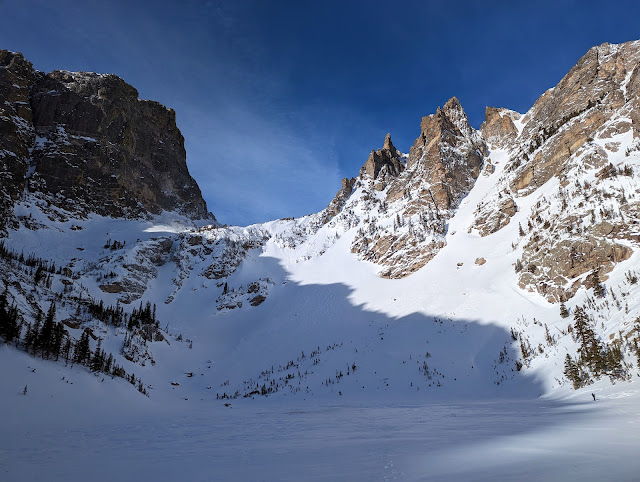


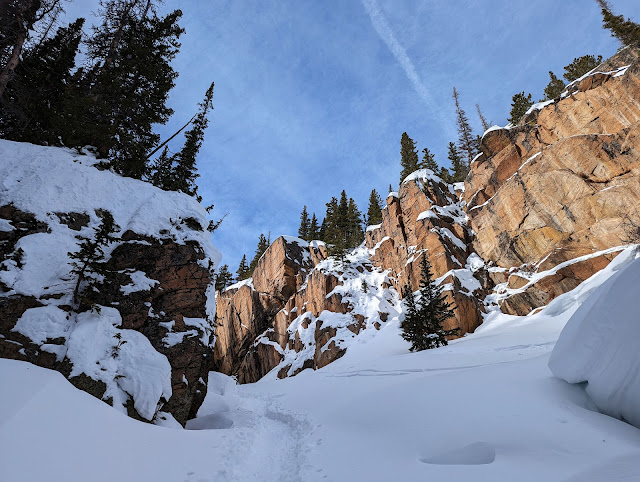







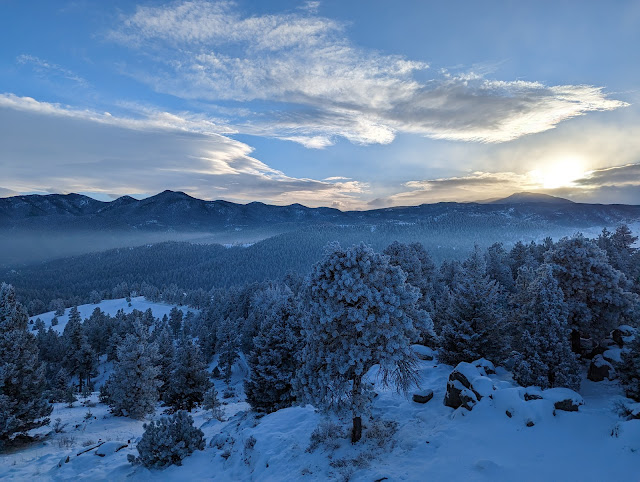



.jpg)
